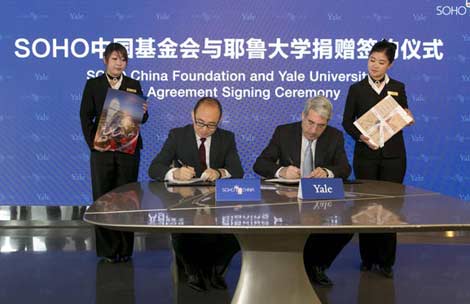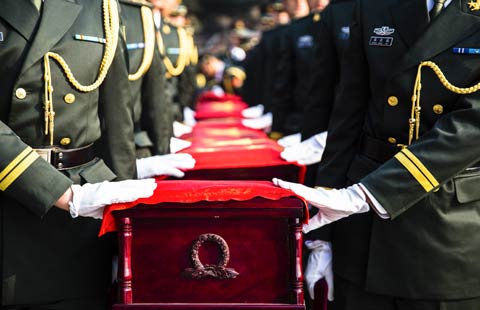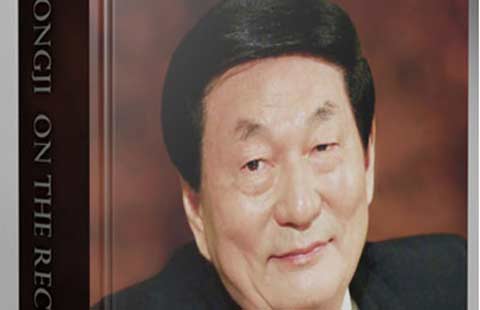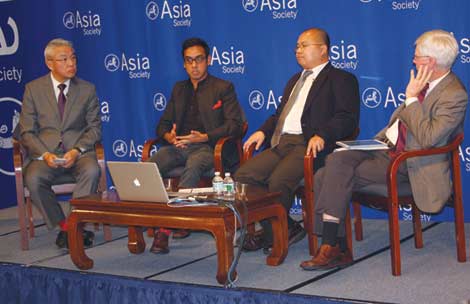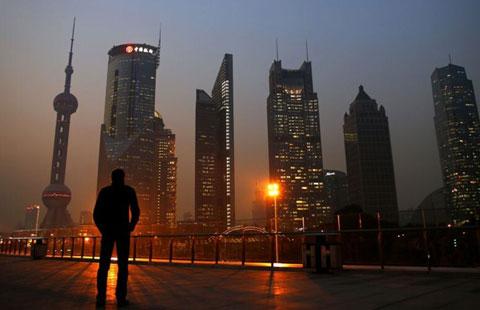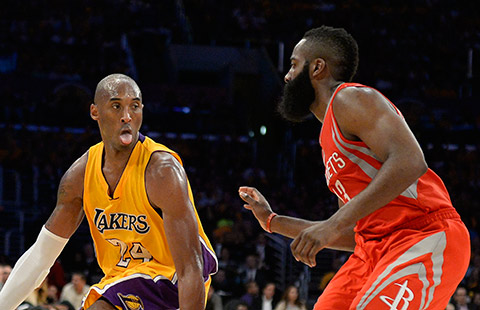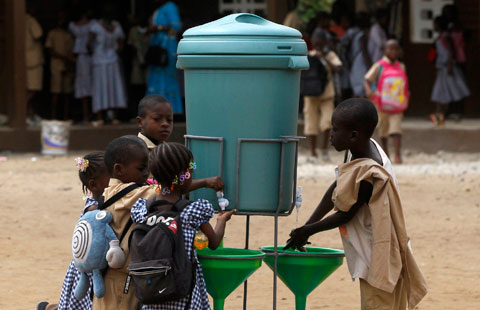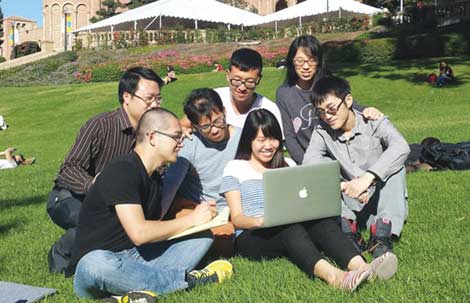First responders visit New York's Sept. 11 Memorial Museum
Updated: 2014-05-18 22:54
(Agencies)
|
||||||||
NEW YORK - Walking out of the new National September 11 Memorial Museum in lower Manhattan, John Feal, an advocate for first responders with health problems, said reliving that day was like a punch in the gut. But he might have also found a bit of closure.
Feal, who along with other first responders and victims' family members was allowed an advance look at the museum before its formal opening on May 21, found himself sizing up bits of broken and twisted steel for something resembling the piece that had crushed his left foot - changing the direction of his life.
"I was saying, that one's too small, that one didn't do it. That one there, the big one, that one could have done it," Feal said, as he stood flanked by three fellow first responders, who each face an array of health challenges.
Through his Feal Good Foundation, Feal has pushed for funding and health care for first responders, including the James Zadroga 9/11 Health and Compensation Act, which expires in 2016.
The museum, eight years in the making, was the subject of innumerable disputes over how best to document the day when hijacked planes slammed into the World Trade Center, the Pentagon and a field near Shanksville, Pennsylvania, killing nearly 3,000 people.
In the hours before Feal's visit, a stream of family members and first responders had universally positive things to say about the museum. The New York Times wrote that it delivered a "gut-punch experience" and New York Magazine called it a "spectacularly mournful institution."
On display are items large and small - a Hudson River retaining wall that survived the attacks and a pair of shattered eyeglasses. Visitors can listen to telephone messages left to loved ones by those who would die in the towers, and cockpit recordings from the doomed airplanes.
"When I come to this area I smell 9/11," said Carol Paukner, a former New York City Transit police officer, who was trapped in one of the towers when it collapsed. "I was glad to have people around me who care about me."
For Paukner and thousands of other first responders, the legacy of Sept. 11 continues as they battle myriad health problems, some linked to breathing in the dust from the collapsed towers. Paukner has just learned she has cancer.
"I hope that a lot of people come down and get educated on what 9/11 is all about and please vote for the politicians who are going to help us with all of our health effects," she said.
As if on cue, U.S. Representative Carolyn Maloney, a sponsor of the Zadroga bill, passed by. A moment later Maloney and Feal were taking in the moment, arm in arm.
"This is an incredible monument," Maloney said. "It's hard to take. Every time I come back I think, maybe I'm over it. But I always start crying."
- Xinjiang publishes anti-terror brochures
- Security pact sealed with Afghanistan
- President Xi encourages international cultural exchanges
- Premier Li: China willing to help Afghan infrastructure
- Chinese FM: China, Asia-Pacific become community of shared destiny
- Foreign minister remarks on possibility of China-Japan summit
Most Viewed
Editor's Picks

|

|

|

|

|

|
Today's Top News
VW defends safety of recalled New Sagitar
Former premier makes Hurun philanthropists list
Xinjiang publishes anti-terror brochures
SOHO endows $10m to Yale
Cook and Ma talk about partnership
Language a barrier to healthcare for Asian Americans
China businesses need innovation: VC
Security pact sealed with Afghanistan
US Weekly

|

|
